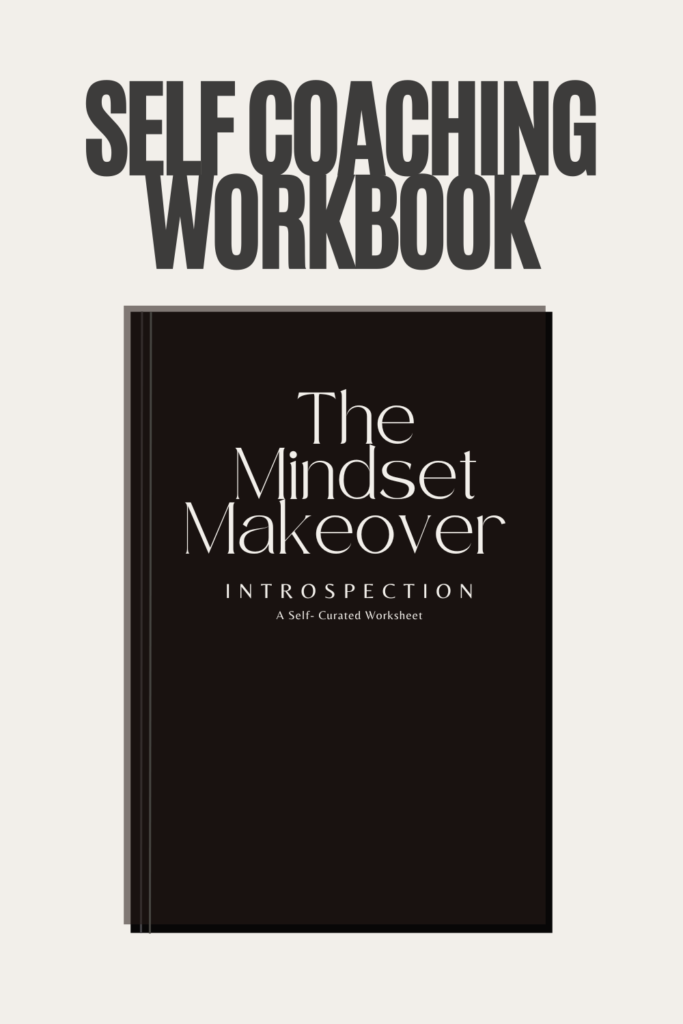A new year, a new chance, a new life that’s the common mantra. It’s interesting that most people have to set a date that the “New Year” is the perfect time to start making changes. But do we really need to wait for January 1, to make those changes?
Did you know that more than half of all new year’s resolutions fail? That means 92 (or 88) out of 100 New Year’s Resolutions end in incomplete and utter failure and research even shows that the majority give up within one to six weeks of starting.
The Mindset Shift
I myself practiced this hyped mantra for years and have utterly failed, why? because the mindset of waiting for the new year already questions your commitment to your resolutions, it also highlights the excutitis disease – meaning the behavior of a person that finds all sorts of excuses to justify their behavior, performance, delay, or lack of action.
Seriously if we want to make a change we should just start the moment the goal enters our mind regardless of the date. That makes the decision more concrete.
It All Comes Down To Your Why
People tend to wait for the new year to start making changes because their goals could either be excessively difficult objectives and delaying it until the new year gives one more time to continue the behavior or practice, or relatively easy goals that can be taken for granted.
The loophole for failed resolutions can easily be blamed on a lack of time, resources, or motivation which is really an excuse because if you need to change for your health, for your business, or whatever it is, there’s no stopping you. You would do it immediately, especially if your health is on the line or the stakes are high.
Time-Consuming but Effective
It doesn’t matter if the resolution is to start a new habit or to give up an addiction; it all comes down to planning, consistency, and dedication. Sadly that is not something that happens overnight.
Thinking long term might not be as glamorous as the “new year’s resolution hype” because of the timeframe involved. Goal-getting, building habits, and changing your mindset take time. You need to identify and unravel skills you’d like to improve, experience setbacks, learn new things, and lose motivation but still be committed despite the challenges. It’s a daunting task but it’s the only way to lasting change.
Long term vs Short Term
Nowadays, instant gratification is making us perpetually impatient. Everyone wants fast results but things of value take time to achieve. That’s part of why they actually have value. So why not consider making a more stable, long-term 3-5 year plan?
- Resolution: a decision to do or not to do something.
- Goal: the object of a person’s ambition; an aim or desired result.
They may sound similar, but in my experience, the mindset and approach are different. When it comes to the process of change it’s important that you understand that change takes time, it takes energy, it takes effort, and a lot of patience from your end.
Sometimes you can give so much for very little in return (at least that’s what it seems). The value of patience allows you to commit to long-term results and outcomes, and not get discouraged by short-term setbacks.
A 3 Year Plan isn’t like a grocery list of goals, such as:
- Become a successful entrepreneur
- Lose weight
- Earn more money
- Learn a new language
- Live in a new country
- Eat healthily
If you take a closer look- all of the listed plans above do not take place overnight, or in a month- these are long-term goals that leave lasting effects. It needs an organized work plan which includes sub-goals and set deadlines.
- Goals should not be rigid.
- Goals provide a direction to follow to achieve the desired outcome.
- Goals involve intention setting, planning, preparing, and taking REALISTIC action.
Ney years resolutions are sometimes not realistic, especially with the timeframe involved.
6 Actionable Solutions
To progressively develop the necessary habits needed to achieve your plan you will need a list of specific intentions, actions, and activities that you need to partake in on a daily, weekly, and monthly basis over an extended period of time.
Making permanent changes in your life will require that you get uncomfortable by doing things that create uncertainty which may very well manifest in fear. You need to be ready mentally because achieving your goals will have more to do with your state of mind than anything else.
Step 1: Reflection
- What matters most to me?
- What is currently missing in my life?
- Why do I need to change?
- Why do I need to stop this behavior or practice?
- How would I like to grow and develop as a person?
- What kind of person would I like to become?
- What’s one goal above all others that I would like to achieve this coming year?
Step 2: Outline Your Goals
Define your goals. This, of course, is best done on paper. A goal that isn’t down on paper is nothing more than a fleeting dream that you hope will materialize one of these days.
Make your goals “smarter”
Successful goals are goals that are well thought out and doable. Smart goals are specific, achievable, realistic, and timely.
Step 3. Create a System to reach those goals
Systems are arguably more important than the goals themselves. Changing behavior is the hardest part of a goal. Just as the system in a health goal would be to go to the gym 3-5 times a week or do meal prep on Sundays. The solution to this is to build a system for your goals.
Define the “How” to Make Your Goals a Reality
One way to make meaningful progress towards your aspirations is to cut your actual goals into smaller micro-habits that require less effort and mental strain. The lesser pressure makes it easier to sustain and will collectively drive you closer to your end goal.
James Clear author, researcher, and entrepreneur outlined in his highly-acclaimed and international best-selling book Atomic Habits the clear steps that anyone can take to gradually build good habits and break bad ones.
Step 4: Take Action
This is where many people often go wrong. Like a New Year’s resolution, people just jump straight into the race in a massive sprint, never realizing that they have just entered a marathon. In other words, they take so much action early that they quickly get tired, burnt out, overwhelmed, and demotivated when they don’t see visible results.
Step 5: Maintain Consistency
It’s very possible that the actions you take may very well bring about inconsistent results. In fact, for a period of time, even though you are doing all the right things, you might not see visible results at all. This can, of course, be quite disheartening, and it certainly gives you a reason to quit. However, seeing no results doesn’t mean you are not making any progress.
Progress isn’t always measured in results, it’s measured by your actions.
Step 6: Keep Yourself Accountable
The final step to attaining your plan is to hold yourself accountable for your choices, decisions, and actions as you make progress along your journey. Holding yourself accountable means being honest with yourself at all times.
Consistency, of course, is the key. The more consistent you are the better your results will be over the long haul. Remember that this isn’t about reaching perfection. This is about creating sustainable change over time. And the only solution to create sustainable change is by taking things one step at a time.
The journey of a thousand miles begins with a single step
A great follow-up to read: HOW TO STOP LIVING A SMALL LIFE BY FACING THESE 10 FEARS


















14 comments
Alex
A timely reminder to read “Atomic Habits” which has been sat on my Kindle for 3 months already… I agree, a “plan” is better than a resolution – it’s hard to stop overnight, but a plan brought about with strategy, scope & time is a winner! Thank you.
Lani
Hi Alex,
Oh, Atomic Habits did help me a lot. Baby steps, no pressure- consistent daily action leads to great habits!
Hanna Long
Love this post! Fantastic tips for setting goals! I am using some of them already ina hope of smashing mine
Lani
Hi Hanna,
Thanks for your comment. I’m happy to hear you’re trying out some of the tips. Hope it works well for you.
Pantea
Hi Lani I love your article and I agree with you that it’s important to understand your WHY and also create SMART goals since those are actually actionable rather than something general like “I want to lose weight.” I put together some simple New Year’s Resolutions ideas that perfectly complement your article so folks can get some ideas on how they can make 2023 their best year yet https://pantearahimian.com/10-simple-new-years-resolutions-ideas-for-a-happier-and-healthier-life/
Lani
Hi Pantea,
I’m glad you enjoyed my post and I’m also happy that you posted a link to your post, it would surely help our readers navigate through their New Years’ goals.
Fransic verso
We definitely need to be smart when setting goals. Having something doable can motivate us to keep working.
Lani
Hi Fransic,
I totally agree with you. Setting smart goals is imperative!
Johnny ward Ray
Great list and I use the daily list to stay on track. I also coach, and work hard on coaching myself as I work.
Lani
Hi Johnny,
I love that you coach yourself as you work. resonates with me.
Deanna | Life By Deanna
Very helpful! Having actionable steps is crucial for success 🙂
Lani
Hi Deanna,
Your right! It’s not just about the plan but actually taking actionable steps towards the goal is what makes the difference.
Lindsey
This is a fantastic read and so timely! The mindshift is spot on and I think keeping yourself accountable is key. If not, it is easy to rationalize our way out of our goals. Thank you for sharing this thought provoking post.
Lani
Hi Lindsey,
I totally agree with you. Being accountable for your decisions and actions are very important.